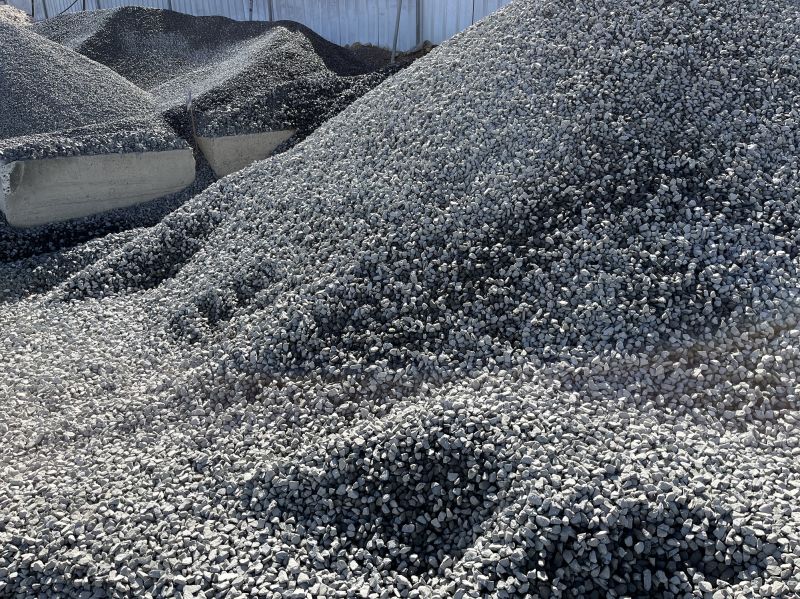Top-Rated Tools for Handling Large-Scale Stone Deliveries
Browse high-quality equipment designed to improve safety, speed, and accuracy in bulk stone transportation.
 Bulk stone deliveries are essential for various construction, landscaping, and gardening projects that require large quantities of natural or processed stone. These products come in different forms, sizes, and materials to suit diverse application needs. When sourcing bulk stone, it is important to consider factors such as stone type, size, weight, and delivery options to ensure the product meets project specifications. Many suppliers offer a range of options, from crushed gravel and decorative stones to large boulders and specialty aggregates, providing flexibility for different project scopes.
Bulk stone deliveries are essential for various construction, landscaping, and gardening projects that require large quantities of natural or processed stone. These products come in different forms, sizes, and materials to suit diverse application needs. When sourcing bulk stone, it is important to consider factors such as stone type, size, weight, and delivery options to ensure the product meets project specifications. Many suppliers offer a range of options, from crushed gravel and decorative stones to large boulders and specialty aggregates, providing flexibility for different project scopes.
Top Overall Option
Bulk Crushed Stone Aggregate
A versatile choice for foundational work, pathways, and drainage solutions, bulk crushed stone aggregate offers a consistent size and texture suitable for various applications. Its durability and ease of compaction make it a popular option for both residential and commercial projects.
Types of Products For Bulk Stone Deliveries
Crushed Gravel
Ideal for driveways, pathways, and drainage systems, crushed gravel provides good compaction and stability.
Pea Gravel
Small, rounded stones often used for decorative purposes, playgrounds, and landscaping beds.
River Rock
Smooth, rounded stones suitable for decorative borders, water features, and garden accents.
Limestone Aggregate
Commonly used in construction and landscaping, limestone provides a neutral color and durable composition.
Granite Chips
Hard, durable stones often used for pathways, patios, and decorative landscaping features.
Decomposed Granite
Fine, compactable material suitable for pathways, driveways, and base layers.
Flagstone
Large, flat stones used for patios, walkways, and stepping stones.
Boulders
Large stones used for landscaping focal points, retaining walls, or decorative features.
Crushed Shells
Organic material often used for pathways, mulch, or decorative accents in landscaping.
Basalt Rock
Dark, dense volcanic stone used in modern landscape designs and as a durable ground cover.
Slate Chips
Thin, flat stones used for decorative pathways and mulching beds.
Recycled Concrete Aggregate
Crushed concrete material suitable for base layers and fill applications.
Trap Rock
Hard, durable volcanic rock often used in construction and landscaping projects.
Marble Chips
Bright, decorative stones used for accents, pathways, and garden beds.
Chalk Stone
Soft, porous stones used for decorative features and artistic projects.
Popular Choices
Widely used for driveways and drainage, offering good stability and ease of installation.
A favored decorative stone for landscaping and pathways due to its smooth texture.
Popular for water features and decorative borders, appreciated for its natural appearance.
Commonly chosen for construction and landscaping projects for its neutral color and durability.
Selected for their resilience and aesthetic appeal in pathways and decorative features.
Popular for creating natural-looking pathways and base layers that compact well.
Favored for patios and walkways due to its flat, large surface area.
Used as focal points or retaining features in landscaping, valued for their size and presence.
Chosen for modern landscapes and durable ground cover applications.
Decorative stones often used in pathways and mulched garden beds.
An economical option for base layers and fill, increasingly popular in construction projects.
Used for decorative accents and pathways, appreciated for their bright appearance.
Choosing the right bulk stone involves understanding the specific requirements of your project. For example, landscaping projects often require smaller, decorative stones that can be easily spread and arranged, while construction projects might need larger, more durable materials like crushed rock or gravel for foundational purposes. Delivery logistics also play a significant role, especially when ordering large quantities, as proper planning ensures timely and efficient receipt of materials.
Proper handling and storage are crucial to maintaining the quality of bulk stone. It is advisable to have clear access for delivery trucks and designated areas for unloading. Additionally, inspecting the delivered materials for consistency and quality helps prevent issues during installation or application. Many suppliers offer guidance on storage and handling, ensuring that your project proceeds smoothly from delivery to completion.
Whether you're enhancing a landscape, building a pathway, or undertaking a major construction project, selecting the right bulk stone products can significantly impact the durability and aesthetics of your work. Carefully evaluating product options and considering logistical aspects will help you make informed decisions that align with your project's goals and budget.
Key Buying Considerations
- Determine the specific type and size of stone suitable for your project needs.
- Assess the total volume required to avoid multiple deliveries or shortages.
- Consider the weight and transport logistics, especially for large quantities.
- Check supplier reputation and reviews for quality assurance.
- Verify delivery options and access restrictions at your site.
- Understand the material's suitability for your intended application, such as drainage or decorative use.
- Evaluate the ease of handling and spreading of the selected stone type.
- Review the available packaging or bulk container options for convenience.
- Consider the cost per unit volume and overall budget constraints.
- Inspect the quality and consistency of the delivered materials upon arrival.
- Assess whether the supplier provides additional services like unloading assistance or storage advice.
- Be aware of any local regulations or permits required for bulk material delivery.
- Determine if the material is compatible with existing landscaping or construction plans.
- Think about long-term maintenance and how the material will perform over time.
- Ensure that the selected product aligns with your aesthetic and functional goals.
This content includes affiliate links and may earn a commission at no additional cost to you. The recommendations are based on informational value and neutrality.
